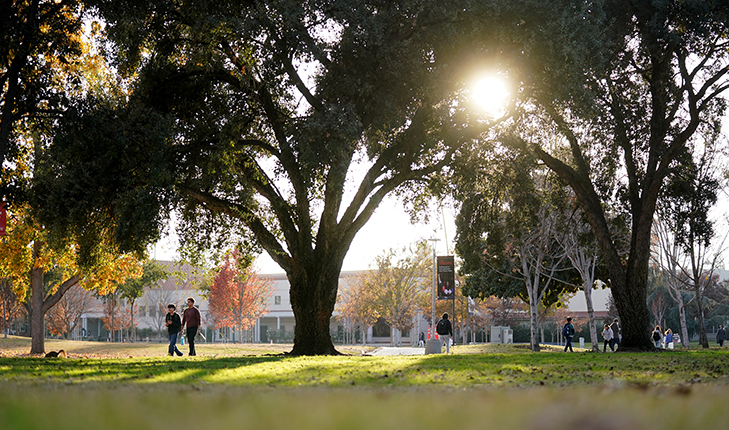Fresno State earned a silver STARS rating for sustainability from the Association for the Advancement of Sustainability in Higher Education.
STARS — the Sustainability Tracking, Assessment and Rating System — measures and encourages sustainability in all aspects of higher education. The program, with 900 participants in 40 countries, is the most widely recognized framework in the world for publicly reporting comprehensive information related to a college or university’s sustainability performance.
This year’s score is an improvement over the university’s bronze rating in 2020, the last time the university submitted a report.
“Fresno State has made monumental changes to enhance sustainability in academics, culture and operations and will continue to improve and be intentional in the coming years,” said Fresno State President Saúl Jiménez-Sandoval. “I believe that every member of our Fresno State community plays a role in advancing sustainability and creating a world where future generations can thrive without bearing the burden of cultural, economic, environmental and social decisions made now. I am extremely proud of the collaborative efforts of our campus to develop the university into a model for advancing sustainability regionally, nationally and globally.”
The rating takes a look at sustainability performance in five areas: academics, engagement, operations, planning and administration, and innovation and leadership. Universities earn credits in these areas and receive a final score based on the percentage of points earned through the credits.
Since 2020, Fresno State has taken steps to improve and record sustainability efforts on campus. The following projects and achievements were among many factors considered in Fresno State’s rating:
- The Central Utility Plant Replacement Project, which started in 2022, provided much-needed energy efficient and reliable heating and cooling to campus. The project also included solar panel installation which will create renewable energy generation and will reduce carbon emissions by more than seven metric tons a year with a target of reducing the university’s energy footprint by more than 30%.
- The addition of the Division of Equity and Engagement, to provide the campus community with education, resources, programming and opportunities to promote access and equity around sustainability.
- An increase in sustainability course offerings across campus. About 11% of the courses offered are sustainability-related compared to 9% four years ago. Nearly 72% of the academic departments have sustainability courses compared to 62% in 2020.





